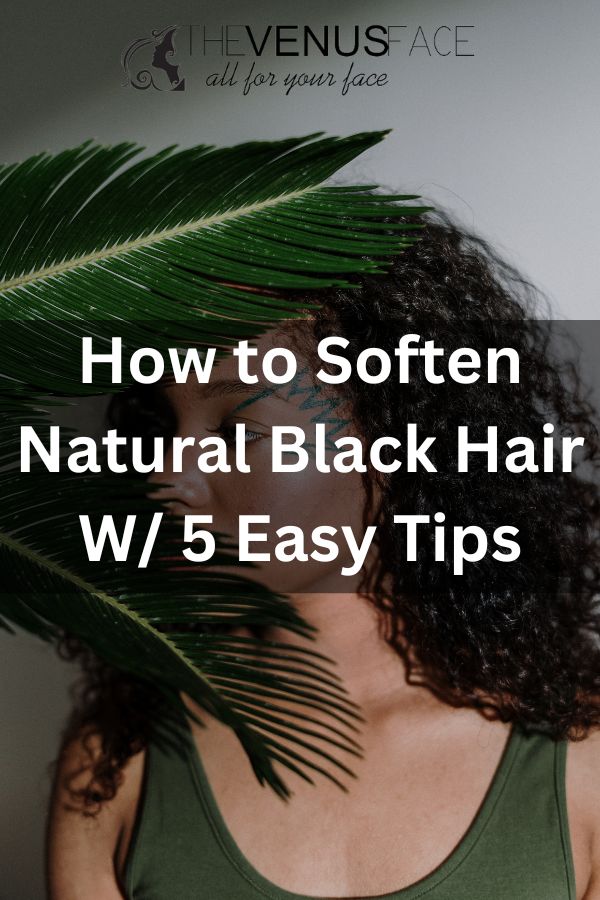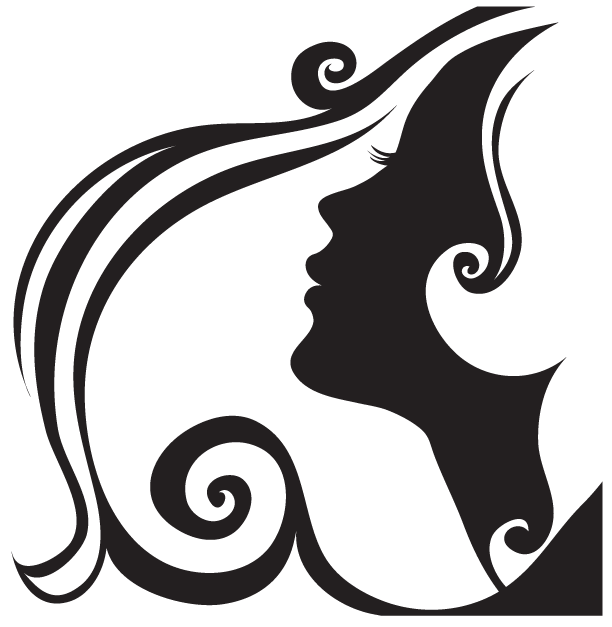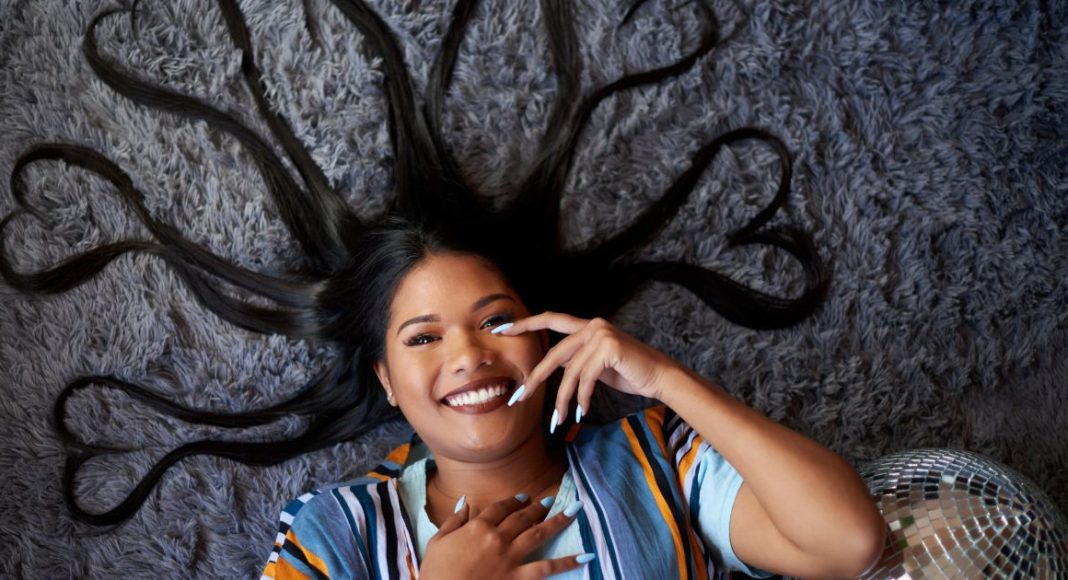For many people with natural black hair, achieving soft, silky locks can be a challenge. While natural black hair is beautiful, it can also be coarse and difficult to manage. Fortunately, there are a variety of techniques and products you can use to soften your natural black hair and make it more manageable. Whether you’re looking to straighten your hair or enhance your curls, there are plenty of tips and tricks you can use to achieve the soft, silky hair you’ve always wanted. In this article, we’ll explore some of the best ways to soften natural black hair, from deep conditioning treatments to the right hair care products.

5 ways to soften natural black hair
If you have natural black hair that feels coarse and difficult to manage, there are several things you can do to soften it. Here are some tips:
- Use a deep conditioning treatment: Deep conditioning treatments can help to nourish and hydrate your hair, leaving it softer and more manageable. More: 20 best conditioners for 4c hair
- Avoid using heat styling tools: Heat styling tools like flat irons and curling irons can damage your hair and make it more difficult to manage. Try to air-dry your hair or use heat-free styling techniques instead. More: How to straighten African American hair without heat.
- Use a leave-in conditioner: Leave-in conditioners can help to detangle your hair and leave it feeling softer and smoother.
- Choose the right hair care products: Look for hair care products that are specifically formulated for natural black hair, and avoid products that contain harsh chemicals that can strip your hair of its natural oils.
- Protect your hair while you sleep: Use a silk or satin pillowcase to reduce friction and prevent tangles while you sleep. More: How to sleep with wavy hair
Why is my black natural hair so dry?
Many people with black natural hair often struggle with dryness. There are several reasons why this may occur:
Lack of Moisture
Natural hair is more prone to dryness because it doesn’t produce as much sebum (natural oils) as other hair types. This means that it needs more moisture to stay hydrated.
Overwashing
Washing your hair too frequently can strip it of its natural oils, causing it to become dry and brittle. It’s recommended that people with natural hair wash their hair no more than once a week. More: How often should black hair be washed?
Heat Styling
Heat-styling tools such as flat irons and curling irons can damage the hair and cause it to become dry and brittle. It’s important to use these tools sparingly and to use a heat protectant before styling.
More: Best blow dryers for black hair, tested by hairdresser
Chemical Processing
Chemical treatments such as relaxers and perms can also damage the hair and cause it to become dry and brittle. If you choose to chemically process your hair, it’s important to take extra care to keep it moisturized.
Environmental Factors
Exposure to sun, wind, and dry air can also contribute to dryness. It’s important to protect your hair by wearing a hat or scarf when outside and using a humidifier in dry indoor environments.
More: How to Moisturize 4C Hair: The Complete Guide
How do I keep my black hair soft all day?
If you want to keep your black hair soft all day, here are some creative tips to try:
Moisturize, moisturize, moisturize
As mentioned earlier, black hair needs a lot of moisture. Make sure to use a leave-in conditioner or hair oil every day to keep your hair hydrated and soft.
Protective Styling
Protective styles like braids, twists, and buns can help keep your hair moisturized by protecting it from the elements. Plus, you can easily apply moisturizing products to your hair while it’s in a protective style.
Silk or Satin Scarf
Sleeping on a silk or satin scarf can help prevent your hair from becoming dry and tangled. These fabrics are gentle on your hair and won’t cause friction like cotton, which can lead to breakage.
Avoid Heat Styling
Heat-styling tools like flat irons and blow dryers can dry out your hair and cause damage. If you must use them, be sure to apply a heat protectant spray first and use the lowest temperature setting possible.
Regular Trims
Regular trims can help prevent split ends and breakage, which can make your hair feel rough and dry. Aim to get a trim every 6-8 weeks.
Use a Humidifier
During the winter months or in dry climates, using a humidifier can add moisture to the air and help prevent your hair from becoming dry.
Don’t Overwash
Washing your hair too frequently can strip it of its natural oils and make it feel dry. Aim to wash your hair no more than once a week or every two weeks, and use a sulfate-free shampoo.
More: How to Moisturize Dry Brittle African American Hair w/ 9 Tips
What oils moisturize black hair?
There are many oils that can moisturize black hair. Here are some of the most popular ones:
- Coconut Oil: Coconut oil is a popular oil for black hair because it is able to penetrate the hair shaft and moisturize from within. It also helps to reduce protein loss from the hair.
- Olive Oil: Olive oil is another great oil for black hair. It contains antioxidants and vitamin E, which help to nourish and moisturize the hair.
- Jojoba Oil: Jojoba oil is a light oil that is similar to the natural oils produced by the scalp. It helps to moisturize the hair without weighing it down.
- Argan Oil: Argan oil is a rich, moisturizing oil that is high in antioxidants and vitamin E. It helps to reduce frizz and improve the overall health of the hair.
- Shea Butter: Shea butter is not an oil, but it is a great moisturizer for black hair. It is rich in fatty acids and vitamins that help to nourish and hydrate the hair.
- Castor Oil: Castor oil is a thick, heavy oil that is great for sealing in moisture. It also contains ricinoleic acid, which helps to improve the health of the scalp and promote hair growth.
- Almond Oil: Almond oil is a light, non-greasy oil that is rich in fatty acids and vitamin E. It helps to nourish and moisturize the hair without weighing it down.
More: How to Moisturize Scalp for Black Hair
Should I oil my black hair every day?
Whether or not you should oil your black hair every day depends on your hair type and needs. Some people with black hair find that applying oil every day helps to keep their hair moisturized and healthy, while others may find that it makes their hair too oily or weighs it down. Here are some factors to consider:
Hair Porosity
If you have high porosity hair, your hair may be more prone to dryness and may benefit from daily oiling. If you have low-porosity hair, your hair may not absorb oil as easily and may not need daily oiling.
Hair Thickness
If you have fine hair, you may find that daily oiling makes your hair look greasy. If you have thick hair, your hair may be able to handle daily oiling without looking weighed down.
Hair Texture
If you have coily or kinky hair, your hair may benefit from daily oiling to help prevent breakage and keep it moisturized. If you have wavy or curly hair, your hair may not need daily oiling and may be able to maintain moisture with less frequent oiling.
Climate
If you live in a dry or arid climate, your hair may benefit from daily oiling to help prevent moisture loss. If you live in a humid climate, your hair may not need daily oiling and may actually become too oily with daily oiling.
It’s important to listen to your hair and determine what works best for you. If you find that daily oiling is too much, you can try oiling every other day or a few times a week. Alternatively, you can use a lighter oil or oil-based product that won’t weigh down your hair.


